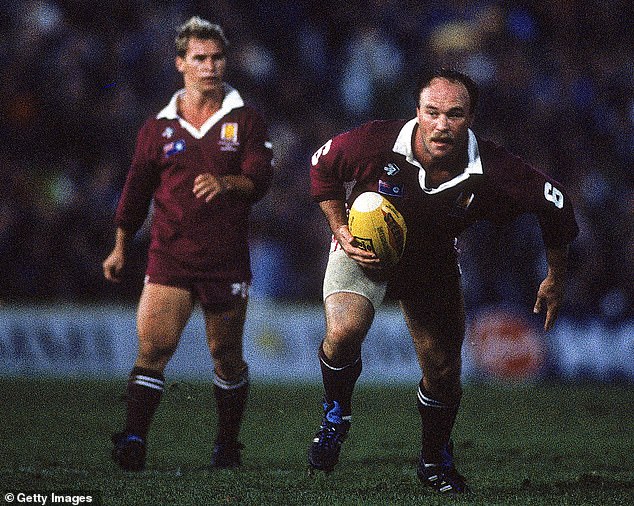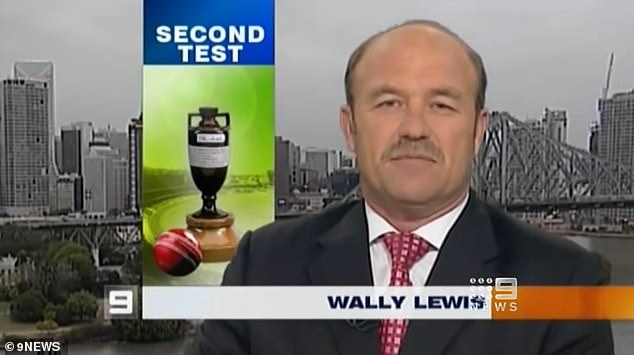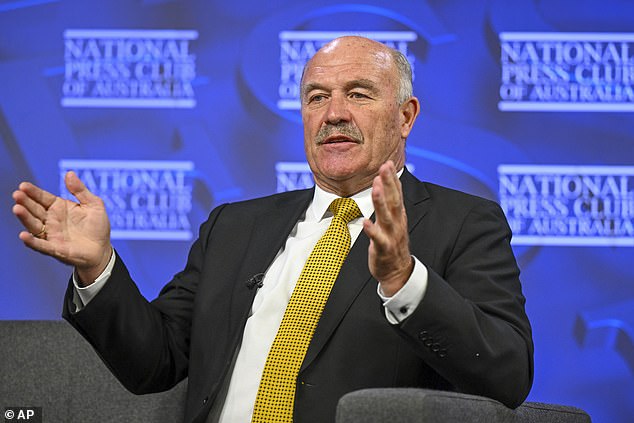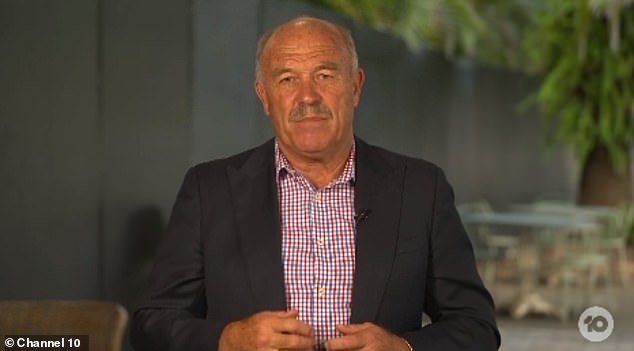Wally Lewis has opened up about “the most degrading moment” of his life – and the rugby league legend is keen to raise awareness about living with his debilitating disorder.
The former Maroons captain, nicknamed ‘The King’, spent three decades at the top of his sport, which saw him win a record eight Player of the Match awards at State of Origin level, spearheading Queensland’s dominance over New South Wales during the 1980s and 1990s.
The 68-year-old transitioned seamlessly from the football field to the commentary box, but shocked fans when he announced his retirement last year after revealing he was suffering from the effects of a neurodegenerative condition known as chronic traumatic encephalopathy, or CTE.
‘I’ve had some problems with my confidence recently. My memory is a bit of a problem but there’s no use complaining, I’m getting on with my life as I’m very quickly approaching retirement which isn’t that far away!’ he said on The Project on Wednesday night.
Lewis said his latest health scare has seen him suffer some embarrassing moments, but pointed to a time in 2006 when he was struggling to deal with his epilepsy.
Wally Lewis opened up about his ‘most demeaning moment’ during his health ordeal

Lewis, nicknamed the King by his fans, is considered one of the greatest football stars of all time.
He had suffered seizures as a player and kept it private, but decided to go public after an incident occurred while presenting on television.
“The first embarrassment for me came when I was presenting the news and that was before I declared that I had epilepsy,” he said.
‘Throughout the news presentation I would sometimes feel a seizure coming on and think “oh no, here it comes” and then, of course, I would have it.
‘I can remember the most humiliating moment, as I was sitting there, reading the news, I started having a fit, I peed in my pants while I was sitting there, and I knew the shame that was about to befall me.
‘The two newsreaders I was with were very good, they took care of me and read the rest of the sport. That was the day I had to confess the difficulties I had and face epilepsy.
“That was quite a while ago and I no longer have seizures, which is very good, but the number 14 rugby league shirt has been replaced due to some memory problems.”
Lewis shared the harsh reality of having memory problems and revealed how it helps to deal with the problem on a day-to-day basis.

Lewis said he wet himself while presenting the news because he was having an epileptic seizure.
“I found that it has become quite common now to drive and get somewhere and think ‘where the hell am I going?’ I don’t remember where I was where I was supposed to be.
‘So I have a diary, which has become my absolute best friend. I carry it with me practically everywhere to remind me where I’m going and, when I get there, what I’m supposed to do.
“It’s been a bit embarrassing, some of the things that have happened along the way, but that’s life, I’m not looking for any sympathy, I just get on with it like ordinary Australians do.”
CTE is the progressive degenerative disease most commonly found in people who have suffered repeated concussions and traumatic head injuries.
The disease is most commonly associated with athletes who play contact sports such as rugby league and AFL.
Symptoms include memory loss, confusion, impaired judgment, aggression, depression, and eventually progressive dementia.

Lewis now has CTE and has been campaigning for government funding to raise awareness.
There is no known treatment or cure for this condition.
Lewis said Australia urgently needed to adopt consistent protocols nationally to help prevent, detect and monitor head injuries across all sports and said players needed to be taught at a basic level to understand the risks.
“Players need to understand that just because you can’t always see a brain injury, like a broken arm, you have to take it seriously,” he said.
“Returning to the field with a head injury is not an honor, it is an oversight.”

